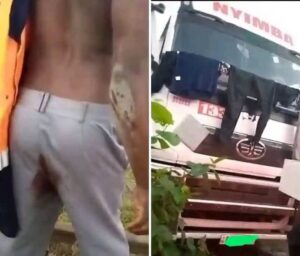Information reaching Kossyderrickent has it that starting tomorrow on January 1st, any child under the age of 12 will NOT be arrested or prosecuted for crimes in New York unless it is a Homicide Charge.
In New York, in 2019, 820 children aged 12 or younger were arrested statewide. Of those, 121 were tried in family courts. Instead of standing trial, the remaining 699 were diverted to programs providing what aims to be rehabilitative therapy, counseling and other services.
Supporters of the bill say its provisions are essential to stemming the flow of Black and Hispanic youth who have disproportionately been disciplined and arrested. A 2019 New York State Department of Criminal Justice Services report found that 90% of New York City arrestees younger than 12 were Black and Hispanic. The new legislation would create what are considered to be age-appropriate rehabilitation and response programs for young people who otherwise would cycle through family courts, where their cases typically are tried. Those services, Davis said, include behavioral therapy and anger management, family counseling, more stable housing for kids and their families and help with refining parenting skills.
“There really is no extra cost here,” Davis said, of the services, which are funded by the state and county governments. “These kids are already getting services. But we’re also paying for the policing, the probation and the family court process.”
Unless accused of criminally negligent homicide, no child younger than 12 could be legally arrested, detained or brought before a judge, according to legislation New York Gov. Andrew Cuomo appears poised to sign. Approved by the state’s legislature, the bill undoes a 1909 law allowing the arrests of kids as young as 7.
The change comes amid national debate over what constitutes overly severe punishment for crimes committed by minors; as arrests of 10- through 17-year-olds has been declining; and as youth arrests are being captured in viral videos and news headlines.
Children under the age of 12 cannot be prosecuted. If a child commits a minor offence, for instance theft or vandalism, the police will talk to the parents. They may also send the child to the youth care office, which will either provide counselling or refer them to other services. If a child under 12 really gets out of hand, the court will intervene by, for example, appointing a family supervisor to monitor the child.
Juveniles who commit minor offences may be referred to the HALT juvenile crime prevention programme. This provides them with the opportunity to put right what they have done wrong. They can, for instance, apologise to the victims and pay for any damage done. If they fulfil their obligations and complete their HALT programme successfully, they will not have a criminal record.
If a juvenile refuses to take part in the HALT programme or does not complete it successfully, their case is referred to the public prosecutor. This will usually result in prosecution.
Juveniles who have been sentenced to youth detention are sent to a young offenders’ institution. The maximum sentence for juveniles aged 16 or 17 is two years. For juveniles aged 12 to 15 the maximum is one year.
While in youth detention they attend school and are given extra lessons in, for instance, social skills and anger management.
Discover more from KossyDerrickent
Subscribe to get the latest posts sent to your email.









